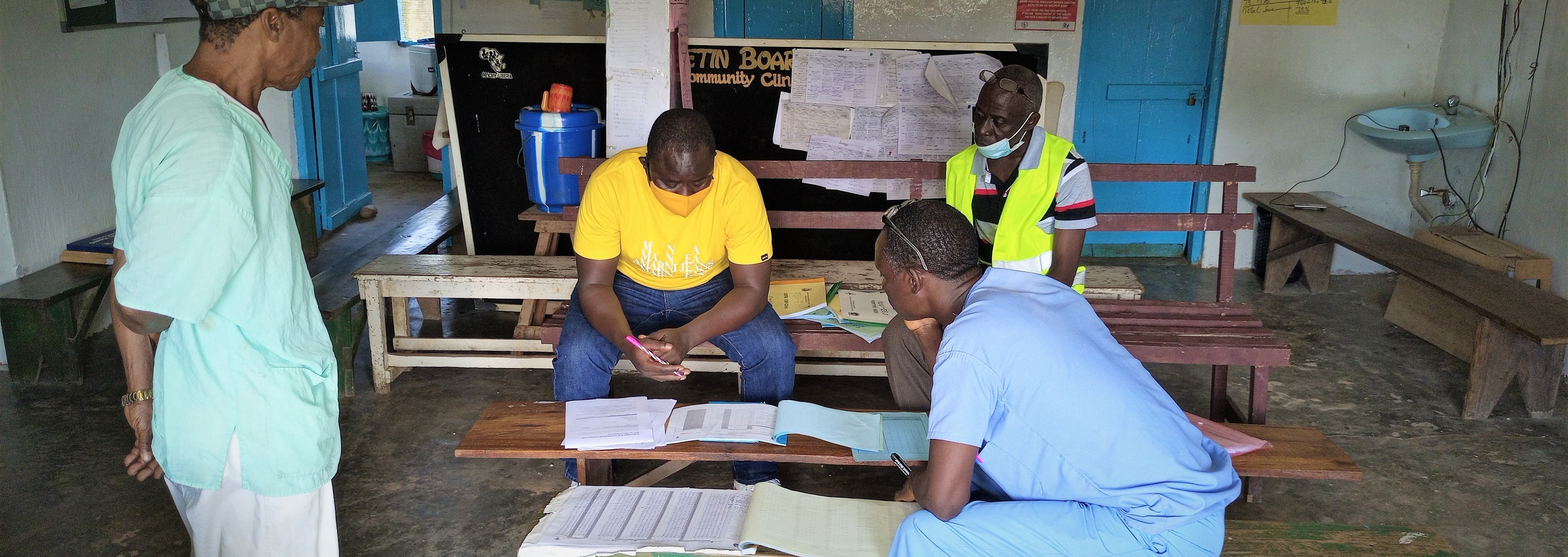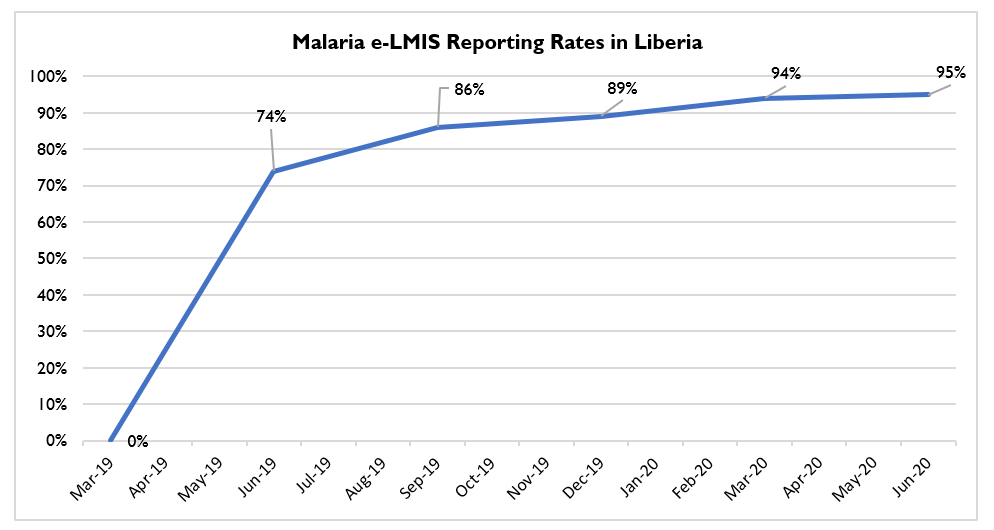
When a nurse receives a patient with symptoms of malaria, she needs to have the proper test kit and medication to diagnose and treat the patient’s illness. To ensure these supplies are available to health workers, national supply chain managers rely on timely, quality data. Getting this data requires that those who monitor stock levels at the service delivery points (SDPs) know how and when to record and report it.
Although Liberia had introduced an electronic logistics management information system (eLMIS) to monitor malaria supplies in 2018, county health teams did not initially receive training on the new system and could not capture logistics data in the eLMIS. As a result, decision-makers had to rely on paper-based data that are hard to retrieve and analyze, which often meant they had incomplete information to inform decisions about how to distribute malaria supplies.
In Liberia, malaria accounts for 34 percent of outpatient visits to health facilities and 48 percent of hospital admissions. When the National Malaria Control Program (NMCP) conducted the 2018 Health Facilities Survey, they found that 67 percent of the time, health facilities were stocked out of the malaria commodities they needed and that 45 percent of facilities were carrying expired products. It was clear that patients at those facilities did not have appropriate access to all of the supplies needed to properly diagnose and treat them.
The Ministry of Health (MOH), with the U.S. President’s Malaria Initiative (PMI) and implementing partners, knew that availability of malaria supplies at health facilities was critical to reducing malaria morbidity and mortality in the country, and recognized that the central warehouse needed better data on malaria commodity stock levels to know how to effectively re-supply health facilities. The MOH set a goal of improving data quality and data visibility across the country. In 2019, the MOH and PMI asked the USAID Global Health Supply Chain Program-Procurement and Supply Management (GHSC-PSM) project to help the country’s supply chain teams at district and facility levels improve data entry, data visibility, and data use so that malaria commodity availability at health facilities would improve.
With funding from PMI, GHSC-PSM launched the nationwide Jump Start data entry campaign in May 2019 in all 15 counties, working with county monitoring and evaluation (M&E) teams to transfer each county’s paper-based LMIS data into the eLMIS.
Next, county health workers needed training on how to use the eLMIS so that it would always be up-to-date, improving the flow of data and malaria supplies throughout the country. The project’s logistics management advisors (LMAs) mentored county health care workers, ensuring they were able to enter data each quarter. From October 2019 to September 2020, the LMAs and county health teams mentored 505 health workers in 346 health facilities across all 15 county health teams. Thanks to the Jump Start activity and health care worker training, by the end of June 2019, 74 percent of health facilities had up-to-date information in the eLMIS. By June 2020, this had risen to 95 percent.

Messan Jackson, the county pharmacist for the Nimba County Health Team, noted, “These on-site mentorships have improved the quality of consumption data coming from the health facilities, including mRDTs and LLINs, to avert stock-outs…and have helped improve commodity availability and ability to treat malaria at the facility.”
Having accurate SDP-level data allows supply chain managers to make better decisions about how to keep health facilities properly stocked, including preventing stockouts and wastage. For example, supplies that are about to expire can be moved to a facility that has a shortage and used before the expiry date.
Across Liberia, improved visibility into the data is allowing supply chain managers to make evidence-based decisions about restocking malaria supplies to health facilities, helping to reduce stockouts, keep supplies reliably available and ensure patients can count on receiving the treatment they need.